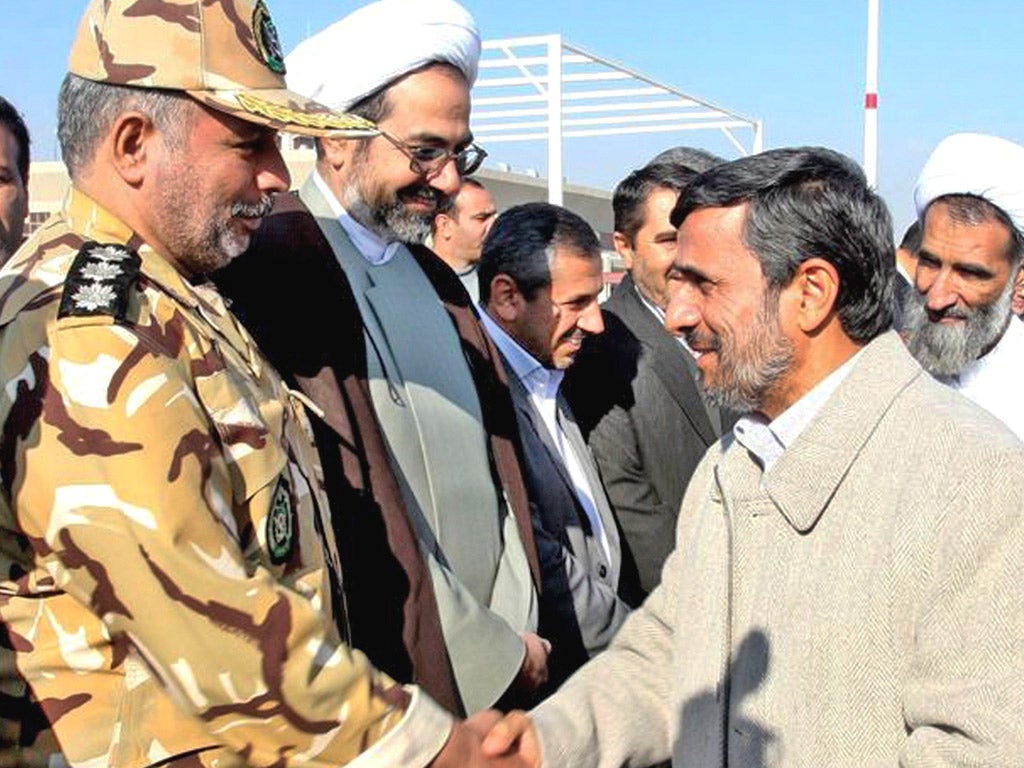Kim Sengupta & Oliver Wright: US backing key for attack that could come before Christmas


The International Atomic Energy Agency's report has raised acute concerns in the West not only over Iran's possible acquisition of a nuclear arsenal, but also about what may unfold if sanctions and negotiations do not force Tehran to change course.
The European Union, including Britain, expect further sanctions after the nuclear watchdog concluded that there was credible evidence that Iran was working on developing a bomb. However, there was public acknowledgement that the scope of punitive measures would be curtailed by opposition from Russia, which has already publicly ruled out supporting fresh sanctions, and China.
At the same time, failure to put adequate and meaningful sanctions in place may, some Western government officials believe, lead Israel to carry out its threat of air strikes against the nuclear installations, possibly within months.
In London, the Foreign Secretary William Hague declared that Tehran's claim that the work was entirely for civilian use has been "completely discredited" by the IAEA findings. "We must continue to increase the pressure and we are considering with our partners a range of additional measures to that effect," he said. His French counterpart, Alain Juppè, went further, threatening "unprecedented levels of sanction" if Iran does not change course. But Mr Hague admitted: "Further action at the United Nations is difficult given the positions of Russia and China."
The Iranian president, Mahmoud Ahmadinejad, showed no signs of changing a combative stance accusing the IAEA of parroting "absurd US claims" and vowing: "This nation won't retreat one iota from the path it is going."
With the ratcheting up of rhetoric and tension there is a real possibility of Israel taking military action against Iran, which could come "as soon as Christmas", according to one senior Foreign Office source. But the source – and other Whitehall officials – says that an attack would need at least tacit American backing.
Separately, a senior British military officer said: "If the Israelis really want to do it, then they may want to do it sooner rather than later. Winter conditions, cloud cover, would make an operation more difficult, although certainly not impossible. But [if it happens] it would be a political decision for the Israelis, not so much a military one. I know from my conversations that a lot of the senior IDF (Israeli Defence Force) people have their doubts about doing this."
The Foreign Office source said: "Of course we are not in favour of Iran developing a bomb – do we think they'd use it? No. The bigger concern is it will be impossible to stop Saudi Arabia and Turkey from developing their own nuclear capability. Then you have an inherently unstable part of the world where countries have got a check mate against any Western threat."
Sir Malcolm Rifkind, chair of the influential Commons Intelligence and Security Committee, stated that a military strike on Iran's nuclear capabilities "might be the least bad option".
"There's a question of whether it's desirable and the answer is, well, you can't rule it out, but it would have to be at the very, very end of the day because of all the horrendous implications of military action," he said. "I don't think Obama wants to do it, I think it's the last thing Obama wants to do."
Join our commenting forum
Join thought-provoking conversations, follow other Independent readers and see their replies
Comments
Bookmark popover
Removed from bookmarks